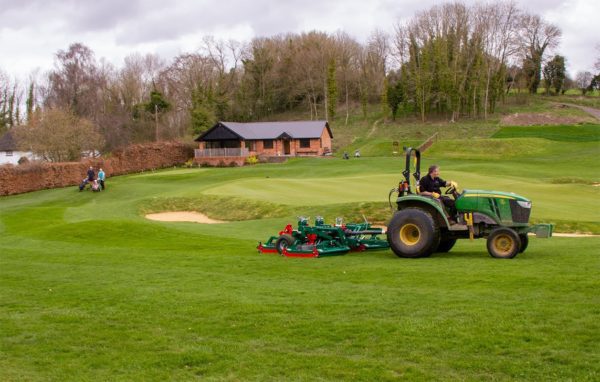
Ace Your Golf Course Maintenance: Top 10 Compact Tractors Uses On A Green
No matter the size of your golf course, whether it’s a standard
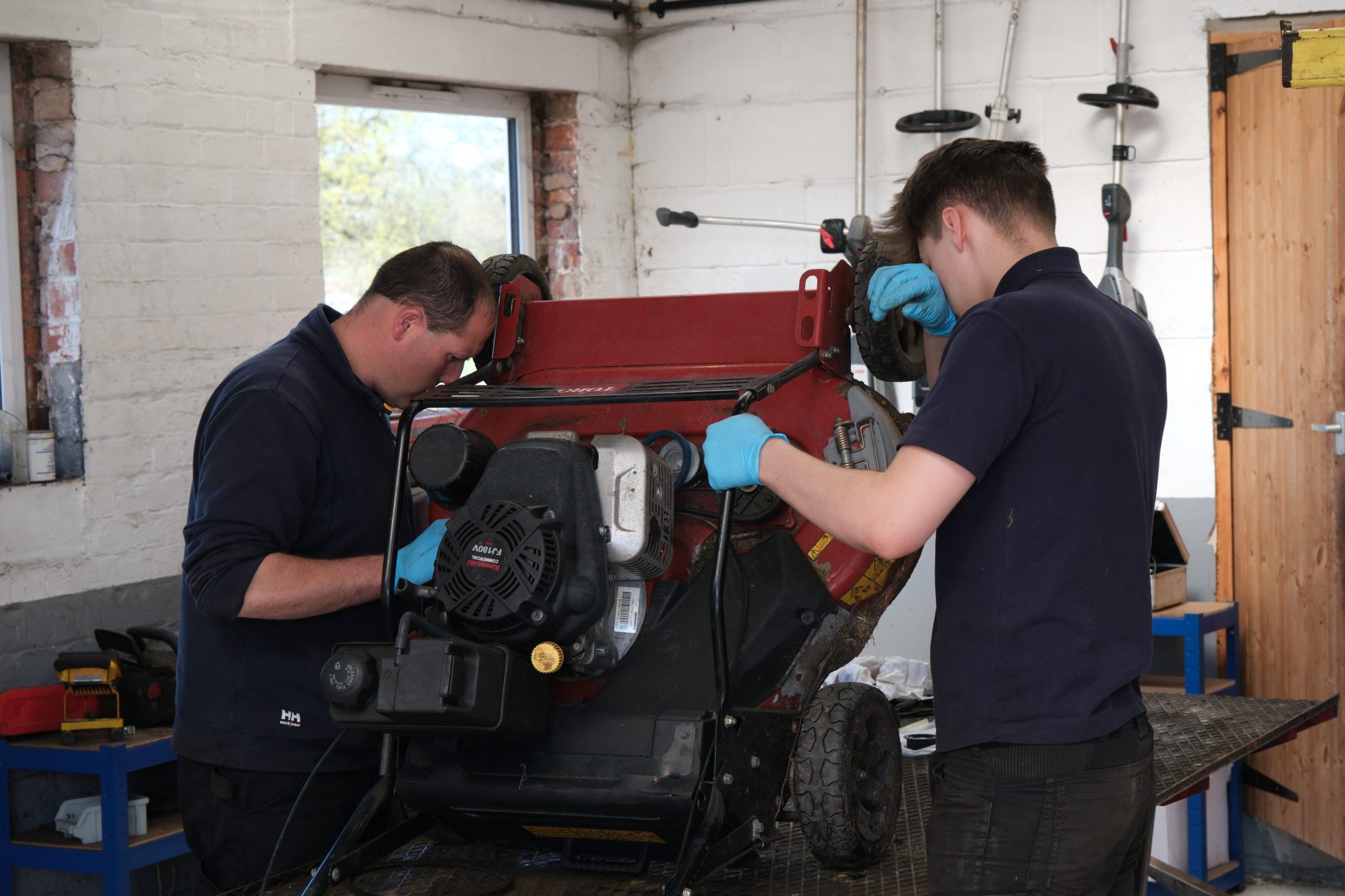
Ground maintenance plays an important role in upkeeping the appearance of golf courses, gardens, sports fields, and other outdoor spaces. But performing outdoor maintenance can be dangerous if appropriate health and safety measures are not followed.
Workers in ground care maintenance operate complicated machinery, handle chemicals, and perform physically demanding maintenance tasks, which can lead to accidents and injuries. Thankfully, by undergoing adequate training and using high-quality equipment, anyone carrying out ground maintenance tasks can do so safely and effectively. This blog will explore the importance of health and safety in the ground maintenance industry and the best practices to follow.
So whether you’re a professional gardener, estate manager, greenskeeper, landscaper, contractor or simply looking to make the most of your home’s expansive garden, this guide covers everything you need to know about carrying out ground maintenance responsibly.
Maintenance operations typically involve some type of heavy machinery. When carrying out maintenance work involving complicated machinery, it’s essential to have a solid understanding of its proper usage to ensure safety.
This involves obtaining the necessary training on safe operation techniques. Reliable ground maintenance machinery companies understand the importance of proper training and often provide their customers ample training and support for their products.
Using high-quality machinery from a trusted company is essential for safe grounds care. When you choose a company with a good reputation, you can rest assured that the machinery you’re accessing is safe, effective, and won’t break down and cause problems for you, your maintenance workers, or members of the public.
Premium machinery usually comes with extra safety features, lowering the risk of accidents or injury.
All in all, high-quality machinery can help get the job done faster and better while saving you time and money in the long run.
There are many risks involved with groundskeeping, including direct contact with chemicals. Ground maintenance chemicals can be hazardous if not handled carefully.
Chemicals such as herbicides, insecticides, and fungicides are often used in the ground maintenance industry to control pests, weeds, and diseases. But these chemicals can also harm the health and safety of wildlife, the environment, and the individual handling them.
This is why taking precautions when using these chemicals is essential. And don’t forget about personal protective equipment (PPE) such as gloves, goggles, and respirators.
Lending or borrowing outdoor machinery can be risky and is not recommended. There are several reasons for this, including:
No matter how small or big your company is, you’re legally responsible for ensuring your employees and anyone affected by your work stays safe and healthy.
Even if you’re a one-person show like a personal gardener, you still need to protect yourself, your clients, and anyone else who might be around while you work.
If you’ve got a company with five or more employees, you’ve got even more legal obligations to meet to keep everyone safe. This includes figuring out the risks, giving your workers the proper training and supervision, and having plans if something goes wrong.
Public liability insurance is vital in the ground maintenance industry because it involves work carried out in public spaces, such as parks, playgrounds, and gardens, which are accessible to members of the public.
As a result, there is a greater risk of accidents or injuries, which could result in claims against the person or company carrying out the maintenance activities.
Safety should be your top priority when operating heavy machineries like lawnmowers, tractors, and other landscaping tools.
Being aware of your surroundings is critical to keep yourself and others safe. Pay attention to everything nearby, such as people, vehicles, and objects in your vicinity. You should also watch out for any potential hazards, such as rocks, debris, or uneven terrain, which could pose a risk to you or others.
When operating outdoor machinery, it’s crucial not to push yourself or your workers beyond your limits by taking on too much work. Overworking can cause physical and mental fatigue, making you prone to accidents and mistakes. Setting a realistic work schedule that considers your physical capabilities and workload is vital to avoid overburdening yourself.
This may involve taking frequent breaks, stretching your muscles, and drinking enough water throughout the day to avoid exhaustion and dehydration. Overall, prioritising health and safety in the ground maintenance industry are crucial in preventing maintenance-related accidents.
These are just a few examples of the health and safety procedures that should be in place in the ground care machinery industry. It’s important to consult with local health and safety regulations to ensure all necessary procedures are in place.
Looking for top-of-the-line ground maintenance machinery that meets health and safety standards? Look no further than Middlewich Machinery.
Our extensive range includes premium landscaping machinery, golf course maintenance tools, and ground care equipment designed to deliver optimal results. Operating throughout Cheshire, you can trust us to provide only the best of the best in ground maintenance solutions.
For more information, please reach out to us at peter@middlewichmachinery.co.uk or call us on 01606 832711.
More Posts

No matter the size of your golf course, whether it’s a standard
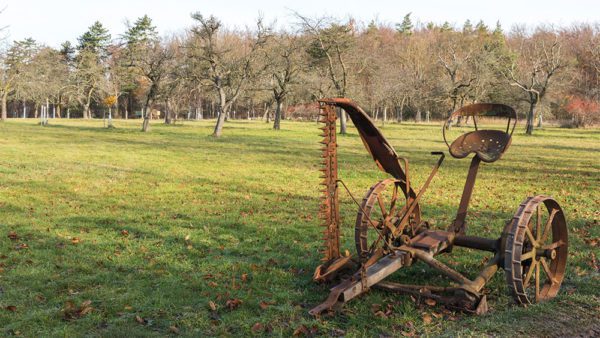
For centuries, groundcare equipment has been an essential part of helping people
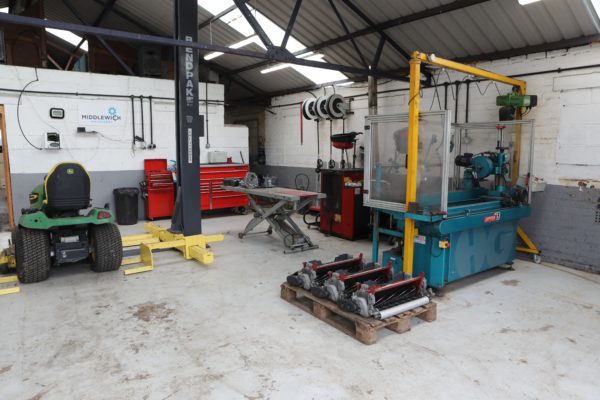
Maintaining your turfcare machinery all year round can be stressful, challenging, and
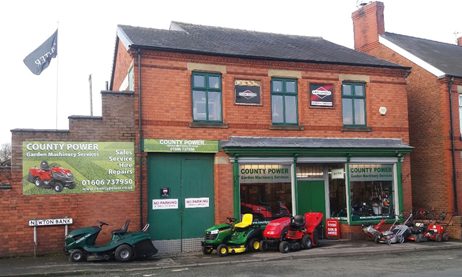
Cheshire-based Middlewich Machinery announces the acquisition of County Power Garden Machinery Services.
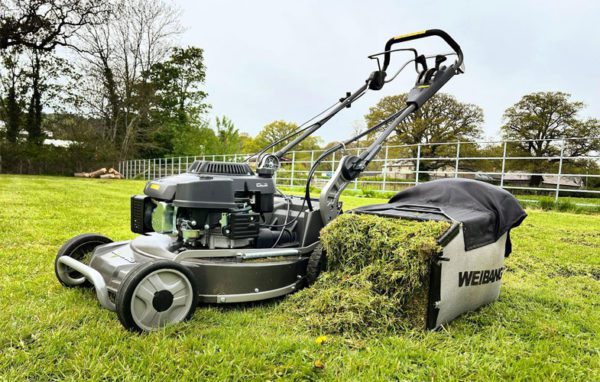
Maintaining your garden can be such a hassle, especially if you’re not prepared for it!

© Copyright 2024. Middlewich Machinery Ltd is a company registered in England and Wales.
Company Number 15448597. VAT Number 129088986. Made with 🤍 by Bloom Digital Marketing Ltd.